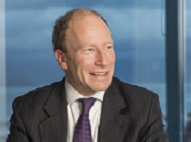 Why insurance law?
Why insurance law?
Insurers insure an incredible variety of things. As well as cases about professionals such as engineers and lawyers allegedly getting it wrong, I’ve had cases involving undersea tractors for laying pipelines, irradiation of polythene film, the mineral structure of clay – the list is endless. In a true insurance case the question is generally whether the insurer agreed to accept a particular risk or not. This depends on two things – the correct interpretation of the insurance policy, and what in fact happened. Both can lead to a fascinating series of investigations and arguments. There’s also often an interesting interplay between what the insurer thinks they agreed to cover, and what the insured thinks ought to be covered.
How would you change the industry?
One of the ironies of insurance is that insurance contracts are, in legal terms, contracts ‘of the utmost good faith’ – but the relations between insurers and their customers, when a claim arises, are typically characterised by mutual mistrust. One of the big challenges for the industry is to improve trust. In my view the key way of doing so is to ensure that claims are dealt with efficiently and fairly. Insurers who adopt a penny-pinching approach to settling claims will lose customers. I believe that insurers who regard low premiums as the key driver for those buying policies, and who sacrifice good service to customers, will be the long-term losers. The winners will be those who try to ensure they provide good cover and a good claims experience, while maximising efficiency so as to keep premiums at a reasonable level. This will help to shift the public perception of insurers as the ‘bad guy’ towards thinking of them as what they really are, which is a critical safety net, effectively spreading the pain of loss among a large number of premium-payers.
Best advice you’ve ever been given?
Don’t just tell the client what they want to hear, in relation to the strength of a claim – tell it like it is.
If you were prime minister for one day, what would you do?
The first thing I’d do is lengthen Wellington airport’s runway. It’s mind-boggling to someone coming from overseas, like me, that the capital city of a country cannot accept incoming flights from most of its trading partners. This is an obvious factor encouraging businesses to locate in Auckland, which could easily be remedied.
The second thing would be to put a lot of resources into speeding up New Zealand’s internet capability. With modern IT connections, there is no reason why people shouldn’t work remotely. Service providers in Wellington, Christchurch, Dunedin, as well as Auckland, and smaller towns, ought to be able to service customers all over New Zealand. At the moment internet connections are very slow and unreliable, compared with Europe or the USA. I believe this is hampering the efficiency of New Zealand businesses and the economic viability of smaller towns around New Zealand, which need and deserve support to preserve New Zealand’s fantastic way of life. How can you do an effective video conference if your picture and sound keep freezing?
What’s the biggest challenge facing the industry today?
Accurately assessing risks in a globalised market – eg climate change, economic risks, and, in New Zealand, earthquake-related risks.
What’s been the highlight of your career?
When the plaintiff discontinued its claim and paid my client’s costs 3 weeks before trial in a multi-million pound claim against my clients, after we had obtained some fantastic evidence from chemistry professors about the mineral analysis of the clay whose composition was being queried.
What’s your favourite style of coffee?
Flat white.
Union, league or soccer or other?
Union. Despite being English, definitely not soccer.
If you could invite three people to dinner, dead or alive, and excluding family or friends, who would they be and why?
(1) Einstein, because he was one of the most brilliant people ever to have lived, and had a great sense of imagination and humour.
(2) Ernest Shackleton, because he was one of the greatest leaders of the last century, and had the strength of mind to marvel at the beauty and power of nature while sailing a 28-foot lifeboat across the Southern Ocean.
(3) Brede Arkless. She was the first female international mountain guide and was a fantastic adventurer. She combined being a professional mountain guide with having 8 children. She lived in Twizel, and was still guiding aged 65. When she was diagnosed with cancer, she rode her bicycle 350 kilometres over the mountain passes to Christchurch for exploratory surgery. When she died the following year her death seemed to be barely reported in New Zealand. She had an unquenchable thirst for life as an opportunity, to be lived to the full, was a huge inspiration to many people, and is a largely unsung hero.
Complete this sentence: if I wasn’t in insurance law I would be…
Climbing mountains with my children.

 Why insurance law?
Why insurance law?